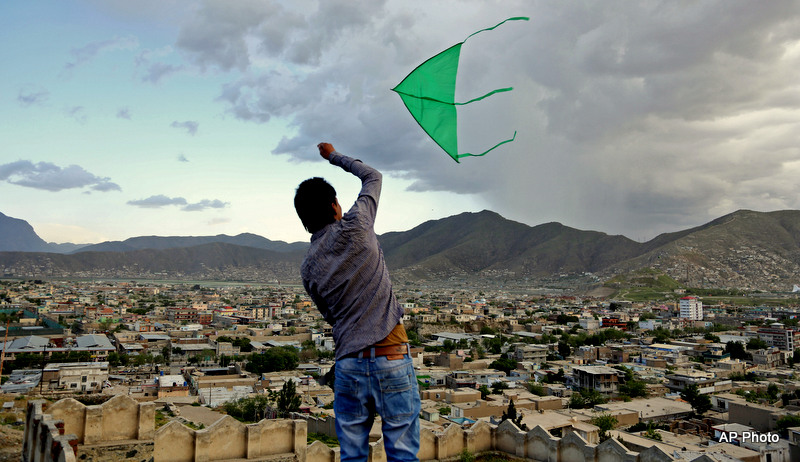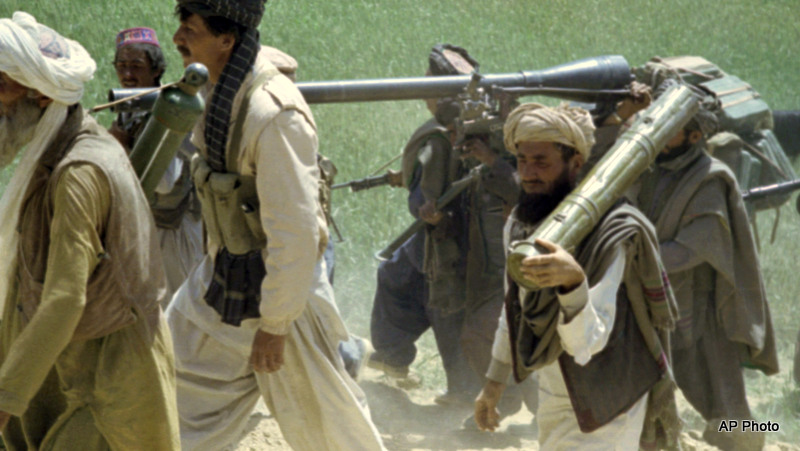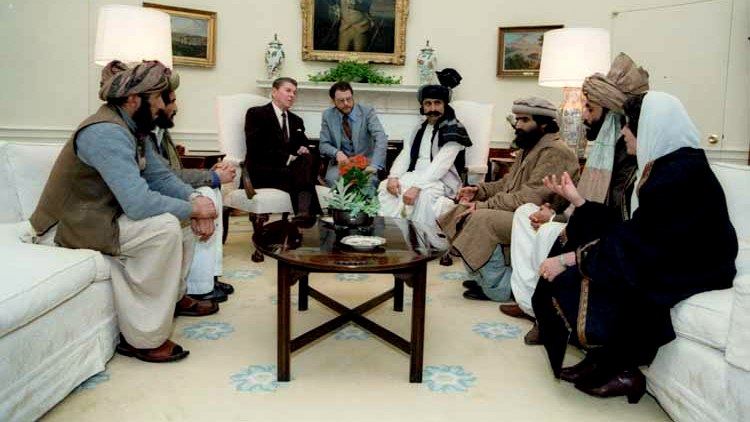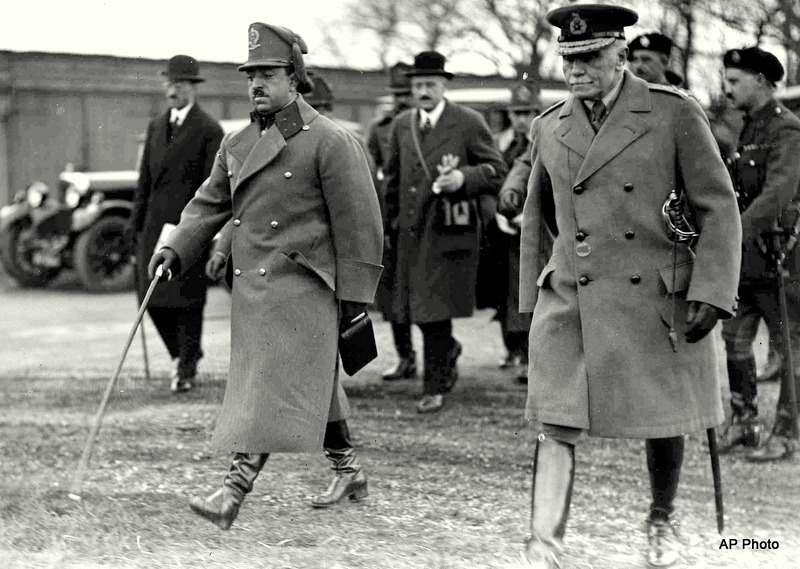
Read the full transcript of the interview between MintPress News and Afghan Prince Ali Seraj.
A country ravaged by decades of war and political instability, Afghanistan has become synonymous with terror and Islamic radicalism, its history forever tied to the evils the world has come to know as the Taliban and al-Qaida.
Many have tried to decipher, explain, and rationalize Afghanistan, intent on grasping the rationale which stands behind the ideology of terror — an ideology said to have been born in the country. Yet Prince Ali Seraj of Afghanistan says those people have gotten it all wrong.
With a history dotted by wars and invasions, Afghanistan has been labelled as Central Asia’s radical black hole and ground zero for Islamic extremism.
However, as it is often the case, all is not as it seems. “When it comes to Afghanistan, it’s never all black or white,” Prince Ali told MintPress News.
While Afghanistan’s troubles are many, it is the rise of terror as a religious paradigm which has overwhelmingly taken precedence. It has reached the point at which the Taliban and its associate in fascism — al-Qaida — have all but completely reshaped and redefined the country’s social, economic, political, and institutional makeup, forcing an entire nation to shift on the very axis which defined its national identity.
The heartland of terror

“The shadow of its former self, Afghanistan stands very much a nation interrupted,” said Iranian political analyst Mojtada Mousavi to MintPress. “Radicalism has devastated this country more than any wars could have done, as it directly sought to eliminate all which made it whole.”
As Western powers and their regional allies continue to argue on the best course of action against terror, Prince Ali has asserted that Afghanistan is simply the victim of an elaborate foreign plot.
“Afghanistan has never been the problem. It was Pakistan which exported terror into Afghanistan to sow unrest and assert control over the region’s greatest geo-strategic asset,” Prince Ali told MintPress in an exclusive interview earlier this month.
Terror came to Afghanistan in the 1980s on the back of the so-called Mujahedeen — a band of foreign volunteer fighters with ambitions of defeating the Red Army and reclaiming Afghan land for Islam. This group of multinational insurgents was largely funded by the United States, Britain, and Saudi Arabia, among others, as a means to defeat Soviet advances into Central Asia.
By the time the Soviet Union announced in 1987 that it would begin withdrawing its troops, the Taliban was ready to make its move on a war-torn Afghanistan, “holy book in hand and verses of the Quran in mouth,” as Prince Ali emphasized.
“From the moment Mullah Omar [a Pakistani Pashtun], the infamous leader of the much abhorred Taliban, proclaimed himself the leader of the faithful in Kandahar, the region and the world has not known a moment of rest,” the prince added.
The Great Game

As the Islamic world has fallen prey to extremism and violent ideologies continue to rise up across the Middle East and North Africa (MENA), threatening global stability, Prince Ali warns that unless lessons are drawn from the fall of Afghanistan, regional stability and prosperity will remain but mirages in the distance.
Swimming against the current, Prince Ali believes that the answers Afghanistan so desperately needs can all be found in its past, not in the adoption of a Western democratic system. “As a republic, Afghanistan will remain divided and therefore unstable. What Afghanistan needs is to have its monarchy back, as only a king will rally the tribes under his flag and return national cohesion,” he told MintPress.
“This is not to say that democracy is not a valid political system, only that to truly function, democracy needs to fit one people’s social and political sensitivities. There are many ways for a people to live in democracy — there is no right or wrong way, only popular legitimacy and popular will.”
Prince Ali has had his finger pointed toward Pakistan, alleging that the Taliban is the creation of Pakistan’s Inter-Services Intelligence, but other analysts, including Mojtada Mousavi, point instead to the U.S. — the very country Prince Ali believes can save his people.
Mousavi, an analyst with a special interest in Central Asia, stressed that al-Qaida is an American export, a CIA-funded project with the goal of justifying American military intervention in the region.
However controversial, the idea that Washington helped prop up Islamic radicalism as a weapon against Soviet Russia has become common knowledge. In an interview with Fox News, former U.S. Secretary of State Hillary Clinton admitted to this, clearly stating that America had a hand in creating the radical monster which it is fighting today. Moreover, in July 2004, the BBC published a report on the origins of al-Qaida, naming the U.S. as the group’s mastermind.
“Osama bin Laden was himself a U.S. asset. His arrival into Afghanistan was engineered by the U.S. in the late 80s to defeat the Soviet Union and introduce a new form of warfare – Islamic radicalism,” Mousavi told MintPress.
“Rather than declare war on communist Russia, Washington used a proxy — al-Qaida, playing Islamic jihad as a powerful weapon of war against its regional and ideological arch enemy. What the world now calls Islamic radicalism was born in the corridors of the White House, it is but a fabrication, a foreign-made deception aimed at promoting Western neo-imperialism.”
The corridors of history

Located at a strategic crossroads in Central Asia, Afghanistan’s very geography means the country is vulnerable to foreign invasions and manipulation. Genghis Khan, Alexander the Great, the British Empire, and the Soviets — Afghans have been living with the reality of war for centuries.
Yet, if many powers have lusted over Afghanistan’s promising trade routes and boundless natural resources, Russia and Britain’s race for control over Central Asia in the 19th and 20th centuries very much set the tone for almost 200 years of unabated tensions and regional instability.
Ajmal Khan Zazai, tribal leader of the eastern Paktia region, says 1929 marked the beginning of Afghanistan’s descent into darkness, explaining that it was Britain’s decision to back an uprising against then-King Amanullah which led to the institutional and social unravelling of Afghanistan, ultimately putting the country at the mercy of neighboring powerbrokers.
“Afghanistan’s history was turned on its head by Habibullah Kalakani,” Zazai told MintPress. “Since then, Afghanistan has been chasing its tail, unable to free itself from under foreign powers, its people shackled by poverty and its future thwarted by tribal infighting.”
Echoing Zazai, Prince Ali argues that Britain fomented unrest in Afghanistan because it feared that King Amanullah’s reforms would embolden neighboring Muslim powers and subsequently leave “the Jewel in the Crown,” India, vulnerable to political and religious dissent.
“In 1929 Britain engineered a revolution to eliminate King Amanullah, a man whose political vision deeply upset the British Empire as it entailed shifting power away from its hands. The British used Habibullah Kalakani, a highway thief, to stage a popular uprising against the throne and bring about the end of a truly independent Afghanistan,” Prince Ali explained.
“The British feared King Amanullah’s political emancipation would embolden neighboring Muslim powers and trigger a broad rebellion against Western imperialism.”
Several decades have passed, and it appears foreign powers are still plotting for regional control, using Afghanistan as a proxy battlefield.
“For all intents and purposes, the Great Game remains a palpable reality,” Prince Ali said, noting that only some of the players have changed.
Read the full transcript of the interview between MintPress News and Afghan Prince Ali Seraj.

